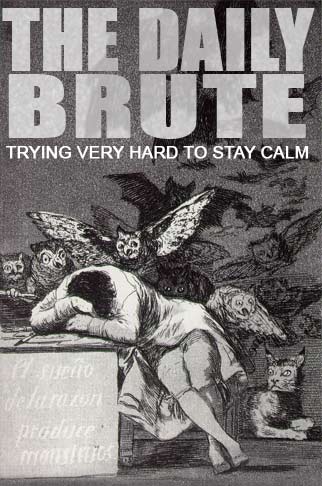Because I live in France, I often wonder if my sense of the apparent irreversible decline of every norm of public life in Britain is more the product of my over-heated imagination than an accurate reflection of reality. After all, occasional visits aside, what I know of Britain today is almost entirely second-hand even if necessarily filtered through my own experience of living there for 40-plus years.
So am I missing the point? Has distance warped my understanding of what is really happening in Britain?
Every instinct says no. More to the point, practically everyone I speak to who still lives in Britain tells precisely the same story: that little by little, drip by drip a continuous erosion of what even 20 years ago would have been taken as read is taking place in public life, the whole moreover at a hideous and astonishing financial cost.
The picture that emerges is of a country desperately clinging to an historic identity – not necessarily just of sturdy, free-thinking yeoman farmers and benevolent squires but certainly with a firm, if complacent grasp of its values and their origins – in the face of an ever more venal public administration. What was once a given – a decent train system, schools that actually taught, policemen who saw their first duty as protecting the public, hospitals dedicated to patients, public servants who were just that – has been progressively undermined to the point where you can be astounded when anything in the public sector actually works at all.
Can this really be true? Is this honestly what Britain has descended to?
The examples are so many – though I don't doubt I will do my best to highlight them all in due course – that I am only going to take two for now.
The first is the blithe assertion earlier this week by Trevor Phillip, head of the Commission for Equalities and Human Rights – the name alone is enough to make you want to groan in despair – that the Ottoman Turks played a key role in defeating the Spanish Armada. On every level, it was a cretinously stupid comment.
First, it is bad history. Bad because it is wrong. Not just a misinterpretation but actually, factually wrong. And bad because it is transparently designed to serve a political cause, the past distorted in the interests of a half-baked contemporary goal of more than just dubious value.
The second is Gordon Brown's refusal to hold a referendum on the European Treaty (for which read Constitution). Call me naive. Brown is after all nothing if not a politician to the tips of his exceedingly busy fingers. Expediency, calculation and self-interest have always dominated. But it was precisely the same combination of expediency, calculation and self-interest that led the Labour Party to promise unambiguously in its 2005 manifesto that it would hold a referendum on the European Constitution.
That this is transparently self-serving scarcely needs to be said. Except, of course, that it does. And frankly it can hardly be said too often.
Friday, 28 September 2007
Subscribe to:
Post Comments (Atom)


No comments:
Post a Comment